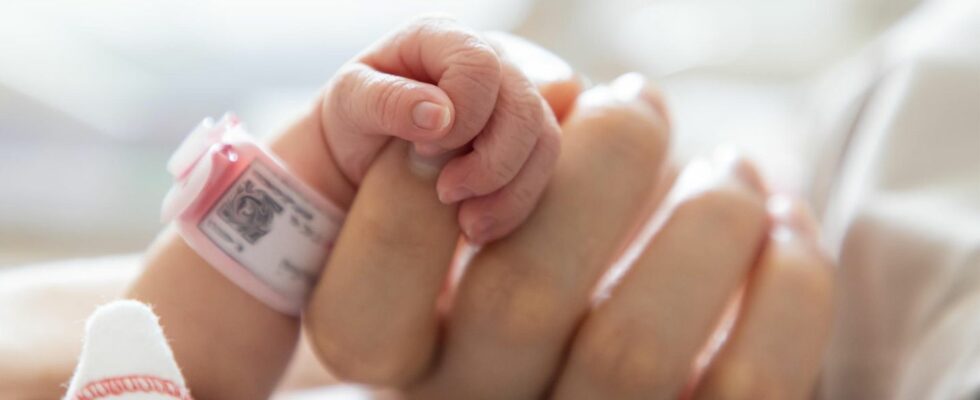Kerrin Stumpf had just finished her apprenticeship and wanted to take off professionally. Then Pele came. And he was different than anything she had expected.
Pelle was born with an oxygen deficiency. Without glasses I only saw something blue at first. Everyone was very excited, I thought: If he’s dead now, I can go right back to work. I had only recently completed my second state exam. I was actually in shock at that moment. When I visited him in the intensive care unit the next day, time stood still. Today I always say: We are crazy. In the sense that we were pushed out of reality. The reality of mothers and fathers who have a child with a disability is not the same as that of other parents.
Even then I was aware that it was his fate, not mine. I’ve made the decision to be a mother and, theoretically at least, I can pack my bags and go. That is unthinkable for my son, he cannot get out of his disability. This perspective has helped me to make a conscious decision again and again to help him find joy in life.
Today, Pelle is 21 and attends a daycare during the day with a strong work ethic. He is in a wheelchair and needs a lot of support, including at night, because he cannot turn around on his own. He cannot speak, but communicates with his eyes and body. He is very empathetic and I am always fascinated by how he manages to open up to people.
Not an easy balance: work and children
For a long time it was unimaginable for me that Pelle would grow up. The subject of death has always played a major role, and of course our attention was often fully on Pelle. That’s why we became parents again. Simply to relieve the older son, who was two at the time. Our daughter was born a year and a half later, I qualified as a lawyer six months after her birth. I really wanted to work, at least part-time, while my sister looked after the kids. Of course I overwhelmed myself with it, but having a job is so important for maintaining one’s own identity. At some point I thought: This won’t work, now get over it.
But when Pelle was five the parents’ association, which I joined right after he was born, called and asked if I wanted to be a part of it. I started with a part-time job as a legal advisor, a job that was easy for me to do given my education, even though I actually wanted to work fewer hours at first. I’ve been the full-time managing director there for eight years now.
Although we gain skills when we provide care, many women with a child with a disability are left behind professionally. There is also a great danger that women will end up in a specialist role. Then, for example, only the mother knows when which medication needs to be given. It is very important to me that this is not the case with us. It was always a matter of course for my husband, who is also a lawyer, that I work and that he has to be involved. He is also the caregiver and had reduced professionally for a few years.
You need a network
Parents of children with disabilities do superhuman things. We can’t do this alone, we need a network for that. You can see that together we are a large, strong group “Living with Disability Hamburg”. Here we can exchange ideas, show solidarity, recharge our batteries, but also do politics. That gives me a lot back.
Last year Pelle was so ill he almost didn’t survive. After he got a feeding tube and therefore different food, he is now getting bigger and bigger. He’s outgrown me, so to speak, and he’ll move out at some point. This letting go is difficult, as parents we don’t really learn that from a child with a disability.
Pelle put me on a new path, I’m grateful for that. He is a very wise person. He’s a coach, a fantastic critic and companion. How do people treat each other, how do we communicate – I perceive these things in a completely different way thanks to Pelle.
Kerrin Stump says that Pelle has more understanding of language than he lets on. For example, he always laughs in the right place.
